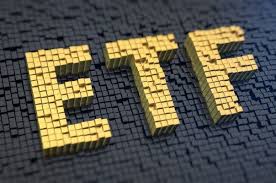4 Biggest Advantages of ETF funds

Advantages of ETF funds
1. Low transaction costs
ETFs are characterized by low management fees and low transaction costs.
On the one hand, index investment does not aim at outperforming the index and only adjusts the portfolio according to the changes of the index components, so there is no need to pay for investment research and analysis.
On the other hand, index investment tends to hold the securities purchased for a long period of time. Unlike active management, index investment does not actively adjust the investment portfolio, which results in high turnover and high transaction costs, index investment has low turnover and low transaction costs.
2. Easy to trade
For ordinary investors, ETFs can also be traded in the secondary market on the exchange just like ordinary stocks.
3. Diversification to reduce investment risk
ETFs are generally passive index funds. Index funds contain a larger number of underlying funds, which can reduce the volatility of the investment portfolio due to the different impact of different underlying funds on market risk.
3. High Transparency
ETFs are passively managed, fully replicating the constituents of the index for the fund's portfolio and return on investment, with the fund holding a comparable amount of shares. Transparency makes it easier for the investor to understand the characteristics of the portfolio and to have full control of the portfolio and make appropriate expectations. Investors can keep track of its price changes.
4. Arbitrage transactions
Arbitrage, in fact, is the existence of a thing in two different markets at two different prices, from the low-price market to the high-price market to realize, to earn the difference between the price, both for arbitrage.
ETF arbitrage is divided into premium arbitrage and discount arbitrage. The basis of premium and discount is the IOPV of the primary market (which can be understood as the intraday real time fund NAV) and the secondary market's Trading at a price greater than IOPV is a premium, while trading at a price less than IOPV is a discount.
When the secondary market price is greater than IOPV, investors can arbitrage the premium, the specific process is: the primary market to apply for ETFs The secondary market sells in real time. When the secondary market price is lower than the IOPV, investors can arbitrage at a discount, the specific process: secondary market buy ETF, primary market real-time redemption.
ETFs have the advantages of simple investment logic, low cost, good liquidity and high efficiency in asset allocation, which are the most popular in developed capital markets. One of the financial products. Are ETFs currently better developed in the A-share market?
ETFs in the A-share market are mainly classified as broad-based ETFs, industry ETFs, currency ETFs, bond ETFs, equity ETFs, and Commodity futures ETFs and cross-border ETFs, etc. ETFs in the A-share market can meet the needs of ordinary investors for broad asset classes. Configuration.



